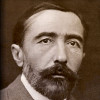“ The human mind is capable of perceiving a great number of things, and is so in proportion as its body is capable of receiving a great number of impressions. ”
Baruch Spinoza, Ethics (1677). copy citation
| Author | Baruch Spinoza |
|---|---|
| Source | Ethics |
| Topic | impression body |
| Date | 1677 |
| Language | English |
| Reference | |
| Note | Translated by R. H. M. Elwes |
| Weblink | http://www.gutenberg.org/files/3800/3800-h/3800-h.htm |
Context
“When the fluid part of the human body is determined by an external body to impinge often on another soft part, it changes the surface of the latter, and, as it were, leaves the impression thereupon of the external body which impels it.
VI. The human body can move external bodies, and arrange them in a variety of ways.
PROP. XIV. The human mind is capable of perceiving a great number of things, and is so in proportion as its body is capable of receiving a great number of impressions.
Proof.—The human body (by Post. iii. and vi.) is affected in very many ways by external bodies, and is capable in very many ways of affecting external bodies. But (II. xii.) the human mind must perceive all that takes place in the human body;”
source



